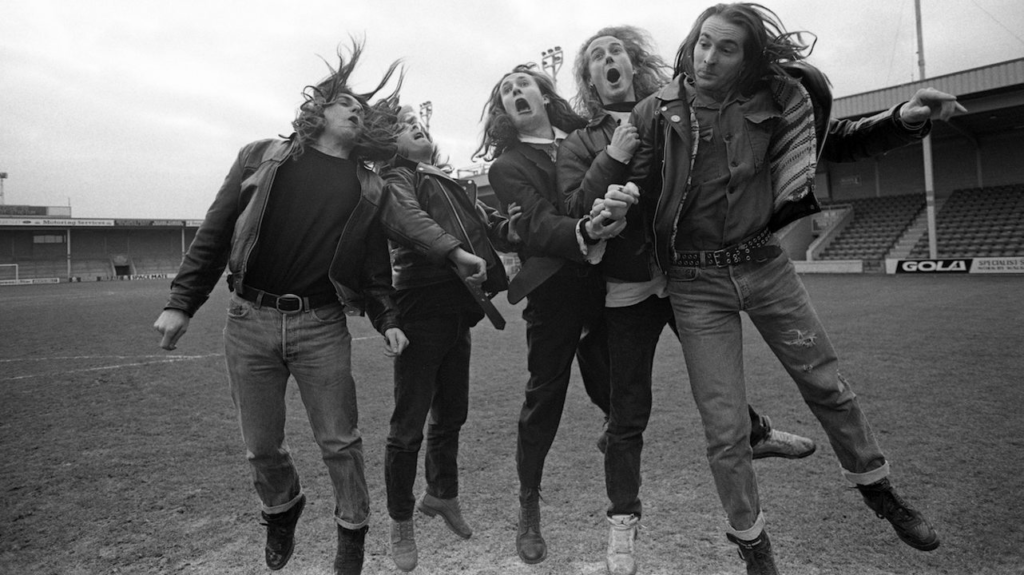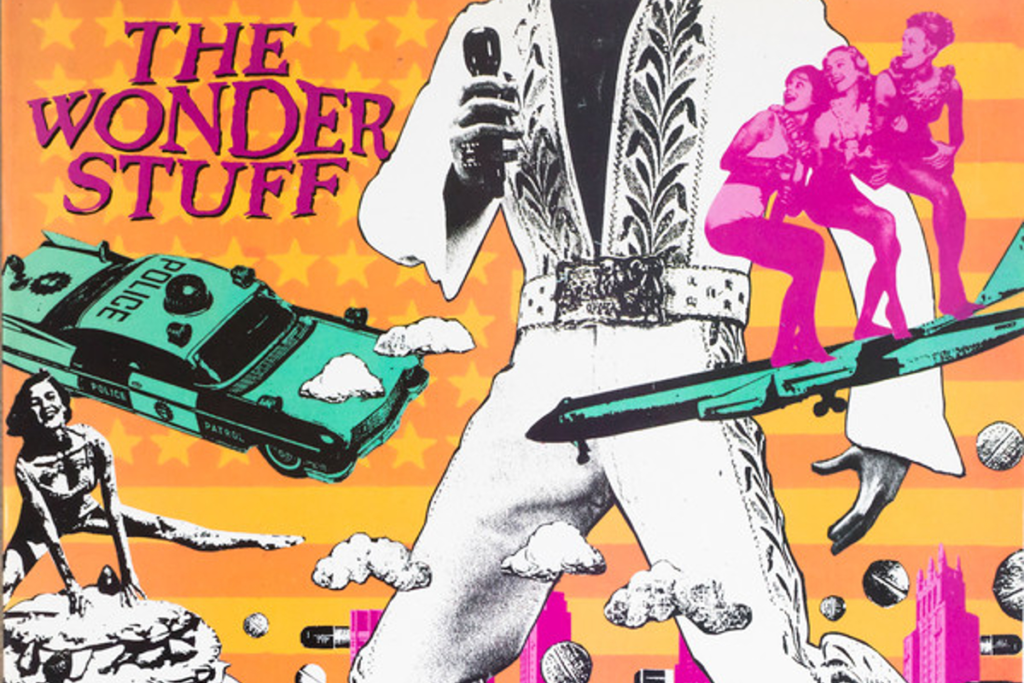“We’re an alternative to the alternative, which is just a clever way of saying we’re the mainstream,” says Miles Hunt of The Wonder Stuff. “We’re just a pop band.”
Being a pop band, though, places The Wonder Stuff squarely on music’s cutting edge. Pop is so old it’s brand-new again.
The Wonder Stuff had been pigeonholed in the alternative niche since it released its debut album, The Eight Legged Groove Machine, in 1988. Four years later, however, the worm has turned. Thanks mostly to the influence of music video, the definitions of alternative and mainstream music have flip-flopped. Today, says Hunt, mainstream acts like The Wonder Stuff are the antiestablishment rebels and so-called “alternative” acts like Nirvana the establishment.

That bit of irony is evident to anyone who heard this British import from the Midlands city of Stourbridge –the same city that spawned Led Zeppelin, Slade and Duran Duran – at last fall’s Q-Fest.
At that show, lead vocalist/guitarist Hunt, armed with an acoustic guitar he played like a Gatling gun, led the quintet on a wild-eyed, whirling-dervish parade of pop pithiness. The band, which includes multi-instrumentalist and recent addition Martin Bell, lead guitarist Malcolm Treece, drummer Martin Gilks and bassist Paul Clifford, assumed a lovingly retro stance. The Stuff’s set wasn’t art, but it sure wasn’t artifice. It was pop at its best — pure and punchy, and packing that increasingly rare buzz of electricity passing between a band and its audience.
“The term `pop’ doesn’t have a bad connotation for me at all,” says Hunt, talking by telephone from London. “People always think of Debbie Gibson and New Kids on the Block when you say pop music. I think of bands like the Jam or Queen. Those bands, they wrote great songs and they could play!
“I’m a child of the pop-music generation, and I’m quite influenced by a lot of Seventies rock acts, from Alice Cooper to the Clash to the Buzzcocks. They were entertainers. It wasn’t fuckin’ Chapterhouse or My Bloody Valentine. Those bands might make great records, but they’ll bore you to tears live.”
Hunt, author of such antiformula gems as “Radio Ass Kiss” and “Astley in the Noose” (a backhanded ode to English dance idol Rick Astley), has a charmingly nasty habit of skewering musical icons and the music business.

He takes a particularly dim view of music-industry marketing. The title of the band’s third Polydor/PolyGram album, Never Loved Elvis, targets the monster that American marketing has become – and the biggest marketing victim of them all, Elvis Presley. The cover sports a gargantuan cutout of Elvis’ midsection towering over the Manhattan skyline like some pop-art King Kong. As Hunt is quick to explain, it’s not Elvis, the entertainer, the band is slagging, but Elvis, the American demigod, construct of Colonel Tom Parker and Hollywood hype.
Hunt similarly seems to be dissing one of American music’s contemporary demigods, Michael Stipe of R.E.M., on the new album’s “Maybe”: “Maybe I should take the mic/Stand up tall like Michael Stipe/And try to solve the problems of the Earth.” But he claims he was “just drawing a comparison between Stipe and myself, because he’s a guy who seems to be doing a similar job to mine,” and admits he was really slamming alternative music.
“Alternative music is only alternative because it’s not very pleasant to the ear, and people buy those records as a fashion statement. Well, I don’t think music’s meant to be a fashion statement,” says Hunt. “The whole idea of what music’s supposed to be is a very simple one. It’s meant to give pleasure to the people who are making the noise, and also entertain anybody else who pays attention to it. That’s what I think we’re here for. We’re a little entertainment in a tough day.”
Hunt’s favorite band of whipping boys is the way-committed Irish supergroup U2. “If I’m in a room and a U2 record comes on, I have to sit down, because there’s so much concentrated effort, so much science, in what they’re trying to do. It sounds like they’ve written down these blueprints in triplicate, and then they’ve delivered `the goods,’ and you think, `That must have been so fucking tiring! And so boooooring!’ Imagine sharing an apartment with Bono, and he comes home every night, thinking and theorizing about rock ‘n’ roll. Christ! It’s music! You don’t theorize about it, it just happens.”
All of this filleting of sacred cows would boil down to so much self-righteousness if The Wonder Stuff failed to justify it in word and deed. But justify it the Stuff does, with its anticonventional wisdom and simple, occasionally profound pop.
Two extreme cases in point are the misleadingly slight “The Size of a Cow” and the sublime “Maybe.” “Cow” is an extended mixed metaphor featuring a roundhouse right of a refrain and the smashing lines “I’d like to think that life is like a drink/And I’m hoping that it tastes like bourbon.” “Maybe,” with its upbeat, neo-Celtic flavor and Hunt’s jagged, self-critical lyric, might be the definitive Wonder Stuff song: a ripe peach, with sweet, fleshy pop surrounding a hard pit of truth. As with the best pop, the delicious Stuff is down deep, beneath the sheen and beyond the hook.
It’s not, however, the stuff of which MTV exposure – or American commercial success – is made, but Hunt would be the first to tell you he’s not in the pop game for the usual plunder. In general, he bills himself as a truthsayer in a world full of forked tongues, and manages to justify that rather self-satisfied assertion, too.
“This is our third album, and it’s expected that we should be at a certain level commercially,” he says. My reaction to that is that about 70,000 people in America have gone out and bought our album. I find that very gratifying. That means 70,000 people liked what we did. Apart from the record company’s bank balance, there’s really no difference between selling seven million albums and 70,000. It’s still a great feeling that people like you enough to spend their money on you.
“I think people get a kick out of our band because they feel like we’re all doing something together, something real. It’s not like the Pet Shop Boys putting on a massive show that you just sit there in your chair and stare at. We’re saying, `Shout at us and we’ll shout at you back, and we’ll all jump around and have some fun.’”
PHOENIX NEW TIMES FEBRUARY 5, 1992